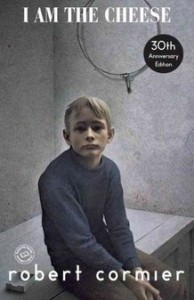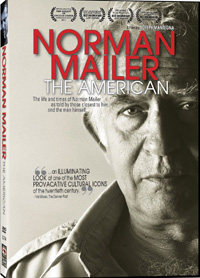Here’s what caught my eye over the past week:
 ‘I Am The Cheese’: A Nightmarish Nail-Biter: The most chilling book I’ve ever read is Robert Cormier’s I Am the Cheese. In this piece, which is almost as compelling as the novel itself, author Ben Marcus remembers how reading the book affected him as a 12-year-old who was willing to sacrifice a day outside playing baseball in order to finish this book.
‘I Am The Cheese’: A Nightmarish Nail-Biter: The most chilling book I’ve ever read is Robert Cormier’s I Am the Cheese. In this piece, which is almost as compelling as the novel itself, author Ben Marcus remembers how reading the book affected him as a 12-year-old who was willing to sacrifice a day outside playing baseball in order to finish this book.
How Mysteries Draw Readers into Their Fake World: I read a lot of mysteries. In this Psychology Today blog Susan K. Perry discusses the book Now Write! Mysteries: Suspense, Crime, Thriller, and Other Mystery Fiction Exercises from Today’s Best Writers and Teachers, edited by Sherry Ellis & Laurie Lamson. She lists 5 reasons why mysteries sometimes fail to ensnare readers in their fake world:
- The opening isn’t compelling.
- The main character is a wimp.
- The point of view changes suddenly and confusingly.
- There are too many skippable parts.
- The characters never lie.
The allure of crime fiction: Australian professor Sue Turnbull explains what draws her to crime fiction:
For crime fiction researcher Prof Sue Turnbull, the personal allure of crime fiction is two-fold.
“The great thing about crime fiction is that it focuses on narrative and form.
“Because I read it when I’m tired, I need it to draw me in. Sometimes, when I read literary fiction, I read a couple of chapters and I’m bored.
“Crime fiction gives you style and form,” she says.
The other feature that Turnbull says makes her interested in crime fiction is that it mirrors society: “Crime fiction reflects the social reality on the ground because it is always engaged with social issues,” she says:
She adds: “My impression is that most crime writers begin by being inspired by something that pricks their social conscience, or intrigues them in terms of human psychology, and they want to write about it in a format that does justice to that.”
 He Doesn’t Deserve Better, But His Work Does: ‘Norman Mailer: The American’: W. Scott Poole, a writer and an associate professor of history at the College of Charleston, discusses the documentary film Norman Mailer: The American, directed by Joseph Mategna: “Although packed with interesting footage and providing an excellent introduction to Mailer’s endlessly fascinating life, the film ends up being about what a mostly reprehensible human it has as a subject.” Here’s Poole’s conclusion:
He Doesn’t Deserve Better, But His Work Does: ‘Norman Mailer: The American’: W. Scott Poole, a writer and an associate professor of history at the College of Charleston, discusses the documentary film Norman Mailer: The American, directed by Joseph Mategna: “Although packed with interesting footage and providing an excellent introduction to Mailer’s endlessly fascinating life, the film ends up being about what a mostly reprehensible human it has as a subject.” Here’s Poole’s conclusion:
I just wish Mantegna had let Mailer, in death, stop being Mailer. We need some retrospectives on his work that remind us that he’s worth remembering as an author. As a human being, he’s simply lamentable, a victim of his own celebrity and rage. But as someone who reimagined the boundaries of journalism and the novel, he’s one of our most important voices. Unfortunately, this film provides us even more reason for rolling our eyes whenever we hear his name. He doesn’t deserve better, but his work does.
